- Home
- Harlan Coben
Darkest Fear mb-7 Page 4
Darkest Fear mb-7 Read online
Page 4
Win breathed in for a twenty count, held it, breathed out for a twenty count. He was meditating, of course, but with a Win-like twist. He did not, for example, listen to soothing nature sounds or chimes; no, he preferred meditating to the sound tracks of, uh, skin flicks from the seventies, which basically sounded like a bad Jimi Hendrix impersonator making wah-wah-wah noises on an electric kazoo. Just listening to it was enough to make you rush out for a shot of antibiotics.
Win did not close his eyes either. He did not visualize a deer sipping water by a lapping stream or a gentle waterfall against green foliage or any of that. His gaze remained fixed on the television screen; more specifically, on homemade videotapes of himself and a potpourri of females in the throes of passion.
Myron stepped fully into the room. Win turned one of his finger-Os into a flat-palm stop sign, then lifted the index finger up to indicate he wanted another moment. Myron risked a glance at the screen, saw the writhing flesh, turned away.
A few seconds later, Win said, "Hello."
"I'd like my disgust noted for the record," Myron said.
"So noted."
Win moved fluidly from the lotus position to a full stand. He popped out the tape and put it in a box. The box was labeled Anon 11. Anon, Myron knew, stood for Anonymous. It meant Win had either forgotten her name or never learned it.
"I can't believe you still do this," Myron said.
"Are we moralizing again?" Win asked with a smile. "How nice for us."
"Let me ask you something."
"Oh, please do."
"Something I always wanted to know."
"My ears are all atwitter."
"Putting aside my repugnancy for a moment—"
"Not on my account," Win said. "I so enjoy when you're superior."
"You claim this" — Myron motioned vaguely at the videotape and then the TV screen—"relaxes you."
"Yes."
"But doesn't it also… I mean, sick as it is… doesn't it also arouse you?"
"Not at all," Win replied.
"That's the part I don't understand."
"Viewing the act does not arouse me," Win explained. "Thinking about the act does not arouse me. Videos, dirty magazines, Penthouse Forum, cyber-porn — none of them arouse me. For me, there is no substitute for the real thing. A partner must be present. The rest has the same effect as tickling myself. It's why I never masturbate."
Myron said nothing.
"Problem?" Win asked.
"I'm just wondering what possessed me to ask," Myron said.
Win opened a Ming dynasty cabinet that had been converted into a small fridge and tossed Myron a Yoo-Hoo. He poured himself a snifter of cognac. The room was lush antiques and rich tapestries and Oriental carpets and busts of men with long, curly hair. If not for the state-of-the-art home entertainment system, the room could have been something you'd stumble across on a tour of a Medici palace.
They grabbed their usual seats.
Win said, "You look troubled."
"I have a case for us."
"Ah."
"I know I said we weren't going to do this anymore. But this is sort of a special circumstance."
"I see," Win said.
"Do you remember Emily?"
Win did that swirl thing with his snifter. "College girlfriend. Used to make monkey noises during sex. Dumped you in the beginning of our senior year. Married your archenemy Greg Downing. Dumped him too. Probably still makes monkey noises."
"She has a son," Myron said. "He's sick." He quickly explained the situation, leaving out the part about possibly being the kid's father. If he couldn't talk about it with Esperanza, there was no way he could raise the subject with Win.
When he finished, Win said, "It shouldn't be too difficult. You're going to talk to the doctor tomorrow?"
"Yes."
"Find out what you can about who handles the records."
Win picked up the remote and flicked on the television. He flipped the channels because there were a lot of commercials on and because he was male. He stopped at CNN. Terese Collins was anchoring the news.
"Is the lovely Ms. Collins visiting us tomorrow?" Win asked.
Myron nodded. "Her flight comes in at ten."
"She's been visiting quite a bit."
"Yep."
"Are you two" — Win crinkled his face as if someone had just flashed him a particularly nasty case of jock rot— "getting serious?"
Myron looked at Terese on the screen. "Still too new," he said.
There was an All in the Family marathon on cable, so Win flipped to it. They ordered in some Chinese food and watched two episodes. Myron tried to get lost in the bliss of Archie and Edith, but it wasn't happening. His thoughts naturally kept returning to Jeremy. He managed to deflect the paternity issue, concentrating, as Emily had asked, on the disease and task at hand. Fanconi anemia. That was what she said the boy had. Myron wondered if they had anything about it on the Web.
"I'll be back in a little while," Myron said.
Win looked at him. "The Stretch Cunningham funeral episode is up next."
"I want to check something on the Web."
"The episode where Archie gives the eulogy."
"I know."
"Where he comments that he never thought Stretch Cunningham was Jewish because of the 'ham' in his last name."
"I know the episode, Win."
"And you're willing to miss it for the sake of the Web?"
"You have it on tape."
"That's not the point."
The two men looked at each other, comfortable in the silence. After some time passed, Win said, "Tell me."
He barely hesitated. "Emily said I'm the boy's father."
Win nodded and said, "Ah."
"You don't sound surprised."
Win used the chopsticks to grab another shrimp. "You believe her?"
"Yes."
"Why?"
"For one thing, it's a hell of a thing to lie about it."
"But Emily is good at lying, Myron. She's always lied to you. She lied to you in college. She lied to you when Greg disappeared. She lied in court about Greg's behavior with the children. She betrayed Greg the night before their wedding by sleeping with you. And, if you will, if she is telling the truth now, she lied to you for the better part of thirteen years."
Myron thought about it. "I think she's telling the truth about this."
"You think, Myron."
"I'm going to take a blood test."
Win shrugged. "If you must."
"What does that mean?"
"I'll let the statement speak for itself."
Myron made a face. "Didn't you just say I should find out for sure?"
"Not at all," Win said. "I was merely pointing out the obvious. I didn't say it made a difference."
Myron thought about it. "You're confusing me."
"Simply put," Win said, "so what if you are the boy's biological father? What difference does it make?"
"Come on, Win. Not even you can be that cold."
"Quite the opposite. As strange as this might sound, I am using my heart on this one."
"How do you figure?"
Win swirled the liquid again, studied the amber, took a sip. It colored his cheeks a bit. "Again I'll put it simply: No matter what a blood test might indicate, you are not Jeremy Downing's father. Greg is. You may be a sperm donor. You may be an accident of lust and biology. You may have provided a simple microscopic cell structure that combined with one slightly more complex. But you are not this boy's father."
"It's not that simple, Win."
"It is that simple, my friend. The fact that you insipidly choose to confuse the issue does not change the fact. I'll demonstrate, if you'd like."
"I'm listening."
"You love your father, correct?"
"You know the answer to that."
"I do," Win said. "But what makes him your father? The fact that he once grunted on top of Mommy after a few drinks — or the way he has c
ared for you and loved you for the past thirty-five years?"
Myron looked down at the can of Yoo-Hoo.
"You owe this boy nothing," Win continued, "and equally important, he owes you nothing. We will try to save his life, if that is what you wish, but that should be where it ends."
Myron thought about it. The only thing scarier than Win irrational was when Win made sense. "Maybe you're right."
"But you still don't think it's that simple."
"I don't know."
On the television, Archie approached the pulpit, a yarmulke on his head. "It's a start," Win said.
Chapter 6
Myron mixed childlike Froot Loops and very adult All-Bran into a bowl and poured on skim milk. For those not reading the Cliffs Notes, this act denotes that there is still a great deal of boy in the man. Heavy symbolism. How poignant.
The Number 1 train took Myron to a platform on 168th Street so far below ground that commuters had to take a urine-encapsulated elevator to reach the surface. The elevator was big and dark and shaky and brought on images of a PBS documentary on coal mining.
Located in Washington Heights, a quick stone's toss from Harlem and directly across Broadway from the Audubon Ballroom where Malcolm X was gunned down, Columbia Presbyterian Medical Center's famed pediatric building was called Babies and Children's Hospital. It used to be called just Babies Hospital, but a committee of learned medical experts was formed and after hours of intense study, they decided to change the name from Babies Hospital to Babies and Children's Hospital. Moral of the story: Committees are really, really important.
But the name, while not exactly Madison Avenue, does adequately reflect the reality of the situation — the hospital is strictly pediatric and deliveries, a well-worn twelve-floor edifice with eleven of them devoted to sick children. There was something very wrong with that, but probably nothing beyond the theologically obvious.
Myron stopped before the entranceway and looked up at the pollution-brown brick. Lots of misery in the city and much of it ended up here. He ducked inside and checked in at the security desk. He gave his name to a guard. The guard tossed him a pass, almost glancing up from his TV Guide in the process. Myron waited a long time for the elevator, reading the Patient's Bill of Rights, which was printed in both English and Spanish. There was a sign for the Sol Goldman Heart Center right next to a sign for the hospital's Burger King. Mixed messages or assuring future business — Myron wasn't sure which.
The elevator opened on the tenth floor. Directly in front of him, there was a rainbow-hued "Save the Rain Forest" mural, painted, according to the sign, by the "pediatric patients" of the hospital. Save the Rain Forest. Oh, like these kids didn't have enough on their plate, right?
Myron asked a nurse where he might find Dr. Singh. The nurse pointed to a woman leading a dozen interns through the corridor. Myron was a little surprised to see that Dr. Singh was of the female persuasion, mostly because he had somehow imagined her being a man. Terribly sexist, but there you go.
Dr. Singh was, as her name strongly implied, Indian, from-India Indian as opposed to Native American Indian. Mid-thirties, he figured, her hair a lighter brown than what he was used to seeing on India Indians. She wore a white doctor coat, of course. So did all the interns, most of them appearing to be about fourteen years of age, their white coats more like smocks, like they were about to finger-paint or maybe dissect a frog in a junior high biology class. Some wore grave expressions that were almost laughable on their cherubic faces, but most emanated that medical-intern exhaustion from too many nights on call.
Only two of the interns were men — boys really— both sporting blue jeans, colorful ties, and white sneakers like waiters at Bennigan's. The women — to call them girls would use up Myron's anti-PC quota for the week — favored hospital scrubs. So young. Babies taking care of babies.
Myron followed the group at a semi-discreet distance. Every once in a while he glanced in a room and immediately regretted it. The corridor walls were festive and brightly painted, jammed with Disney/Nick Junior/PBS kiddie images and collages and mobiles, but Myron only saw black. A floor filled with dying children. Bald little boys and girls in pain, their veins blackened by toxins and poisons. Most of the children looked so calm and unafraid and unnaturally brave. If you wanted to see the stark terror, you had to look in the eyes of the parents, as though Mom and Dad were sucking the horror toward them, taking it on so that their child wouldn't have to.
"Mr. Bolitar?"
Dr. Singh met his eye and held out her hand. "I'm Karen Singh."
Myron almost asked her how she did this, how she stayed on this floor day in and day out, watching children die. But he didn't. They exchanged the usual pleasantries. Myron had expected an Indian accent, but the only thing he picked up was a little Bronx.
"We can talk in here," she said.
She pushed open one of the superheavy, superwide doors endemic to hospitals and nursing homes, and they stepped into an empty room with stripped beds. The barrenness ignited Myron's imagination. He could almost see a loved one rushing into the hospital, repeatedly pushing the elevator call button, diving inside, pushing more buttons, sprinting down the corridor into this silent room, the bed being stripped by a nurse, then the sudden cry of anguish….
Myron shook his head. He watched too much TV.
Karen Singh sat on the corner of the mattress, and Myron studied her face for a moment. She had long sharp features. Everything pointed down — her nose, her chin, her eyebrows. Sort of harsh.
"You're staring," she said.
"I don't mean to."
She pointed to her forehead. "You were maybe expecting a dot?"
"Er, no."
"Very good, then let's get to it, shall we?"
"Okay."
"Mrs. Downing wants me to tell you whatever you want to know."
"I appreciate your taking the time."
"Are you a private investigator?" she asked.
"More like a family friend."
"Did you play basketball with Greg Downing?"
Myron was always surprised by the memory of the public. After all these years, people could still recall his big games, his big shots, sometimes with more clarity than Myron could. "You're a fan?"
"Nope," she said. "Can't stand sports actually."
"So how did you—"
"Just a deduction. You're tall and about the right age and you said you were a family friend. So…" She shrugged.
"Nice deduction."
"It's what we do here when you think about it. Deduce. Some diagnoses are easy. Others must be deduced from the evidence. You ever read Sherlock Holmes?"
"Sure."
"Sherlock said that you should never theorize before you have facts — because then you twist facts to suit theories rather than twisting theories to suit facts. If you see a misdiagnosis, nine times out of ten they ignored Sherlock's axiom."
"Did that happen with Jeremy Downing?"
"As a matter of fact," she said, "it did."
Somewhere down the hall, a machine started beeping. The sound hit the nerves like a police taser.
"So his first doctor screwed up?"
"I won't get into that. But Fanconi anemia isn't common. And because it looks like other things, it's often misdiagnosed."
"So tell me about Jeremy."
"What's to tell? He has it. Fanconi anemia, that is. In simple terms, his bone marrow is corrupted."
"Corrupted?"
"In layman's term, it's shit. It makes him susceptible to a host of infections and even cancers. It commonly turns into AML." She saw the puzzled look on his face and added, "That's acute myelogenous leukemia."
"But you can cure him?"
" 'Cure' is an optimistic word," she said. "But with a bone marrow transplant and treatments with a new flu-darabine compound, yes, I believe his prognosis is excellent."
"Fluda-what?"
"Not important. We need a bone marrow donor that matches Jeremy. That's what counts he
re."
"And you don't have one."
Dr. Singh shifted on the mattress. "That's correct."
Myron felt the resistance. He decided to back off, test another flank. "Could you take me through the transplant process?"
"Step by step?"
"If it's not too much trouble."
She shrugged. "First step: find a donor."
"How do you go about that?"
"You try family members, of course. Siblings have the best chance of matching. Then parents. Then people of similar background."
"When you say people of similar background—"
"Blacks with blacks, Jews with Jews, Latino descent with Latino descent. You'll see that quite often in marrow drives. If the patient is, for example, a Hasidic Jew, the donation drives will take place within their shuls. Mixed blood is usually the hardest to match."
"And Jeremy's blood or whatever you need to match — it's fairly rare?"
"Yes."
Emily and Greg were both of Irish descent. Myron's family came from the usual potpourri of old Russia and Poland and even a little Palestine thrown in. Mixed blood. He thought about the paternity implications.
"So after you exhausted the family, how do you search for the match?"
"You go to the national registry."
"Where are they located?"
"In Washington. You listed?"
Myron nodded.
"They keep computer records there. We search for a preliminary match in their banks."
"Okay, now assuming you find a match in the computer—"
"A preliminary match," she corrected. "The local center calls the potential donor and asks them to come in. They run a battery of tests. But the odds of matching are still fairly slim."
Myron could see that Karen Singh was relaxing, comfortable with the familiar subject matter, which was exactly what he wanted. Interrogations are a funny thing. Sometimes you go for the full frontal attack, and sometimes you sidle up, friendly-like, and sneak in the back. Win put it simpler: Sometimes you get more ants with honey, but you should always pack a can of Raid.
"Let's suppose you find a full-fledged donor," Myron said. "What then?"

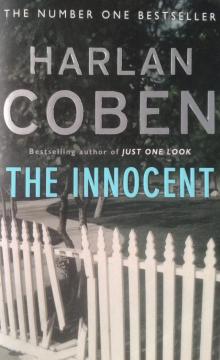 The Innocent
The Innocent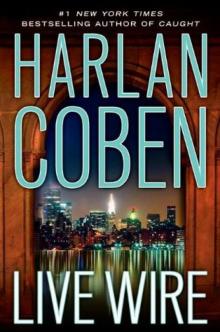 Live Wire
Live Wire Play Dead
Play Dead Drop Shot
Drop Shot Seconds Away
Seconds Away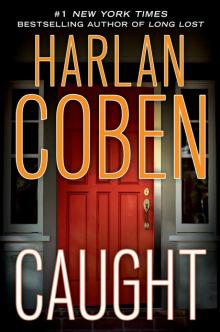 Caught
Caught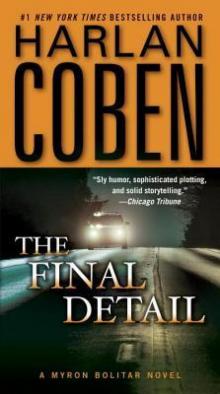 The Final Detail
The Final Detail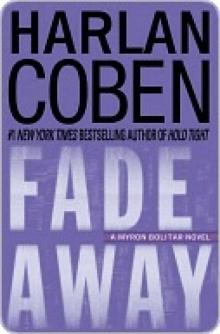 Fade Away
Fade Away Home
Home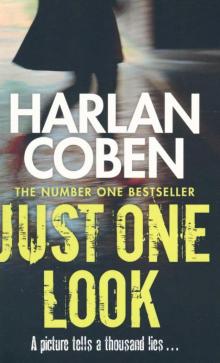 Just One Look
Just One Look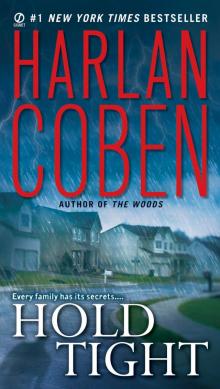 Hold Tight
Hold Tight Fool Me Once
Fool Me Once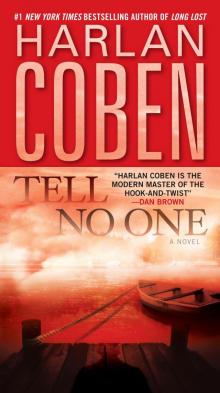 Tell No One
Tell No One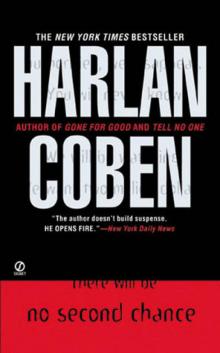 No Second Chance
No Second Chance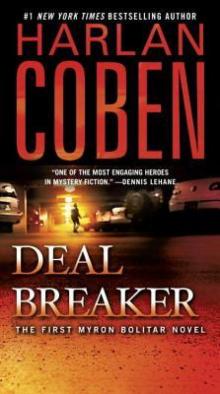 Deal Breaker
Deal Breaker Long Lost
Long Lost One False Move
One False Move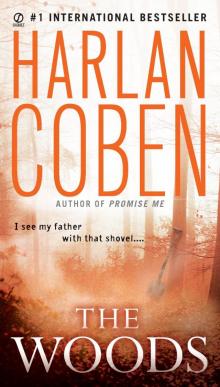 The Woods
The Woods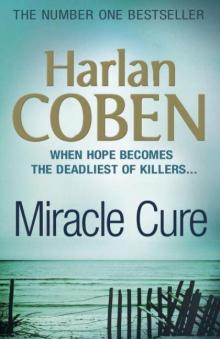 Miracle Cure
Miracle Cure Found
Found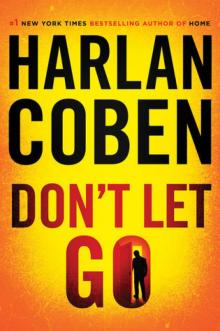 Don't Let Go
Don't Let Go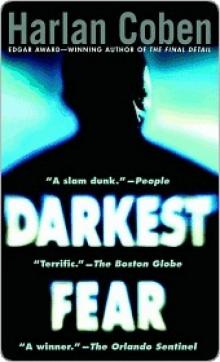 Darkest Fear
Darkest Fear The Stranger
The Stranger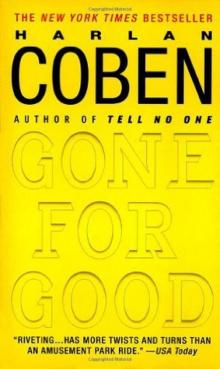 Gone for Good
Gone for Good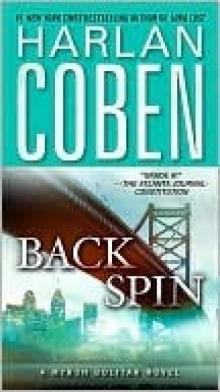 Back Spin
Back Spin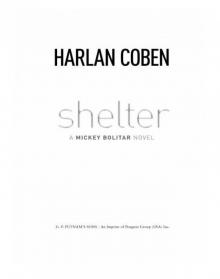 Shelter
Shelter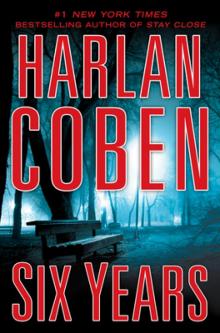 Six Years
Six Years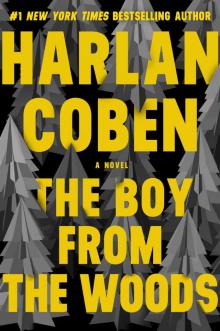 The Boy from the Woods
The Boy from the Woods Missing You
Missing You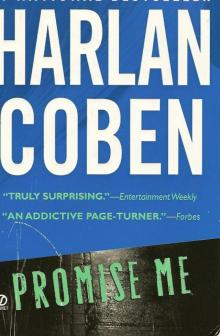 Promise Me mb-8
Promise Me mb-8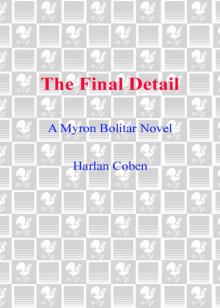 The Final Detail: A Myron Bolitar Novel
The Final Detail: A Myron Bolitar Novel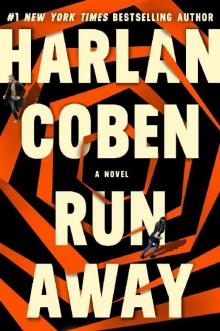 Run Away
Run Away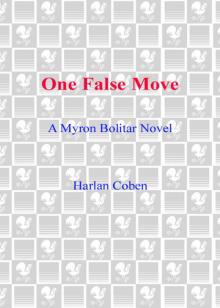 One False Move: A Myron Bolitar Novel
One False Move: A Myron Bolitar Novel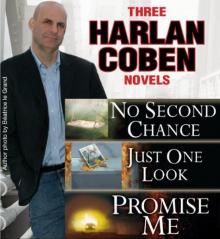 Three Harlan Coben Novels
Three Harlan Coben Novels the Woods (2007)
the Woods (2007) Tell No One (2001)
Tell No One (2001) the Innocent (2005)
the Innocent (2005)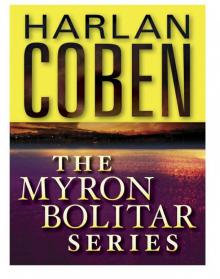 The Myron Bolitar Series 7-Book Bundle
The Myron Bolitar Series 7-Book Bundle Gone for Good (2002)
Gone for Good (2002) Caught (2010)
Caught (2010) Hold Tight (2008)
Hold Tight (2008)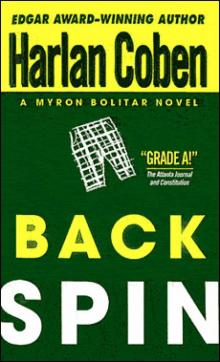 04 - Back Spin
04 - Back Spin Miracle Cure (1991)
Miracle Cure (1991) Harlan Coben 3 Novel Collection
Harlan Coben 3 Novel Collection Just One Look (2004)
Just One Look (2004)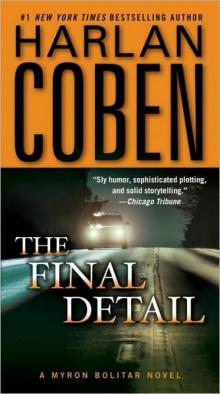 The Final Detail mb-6
The Final Detail mb-6 Play Dead (2010)
Play Dead (2010)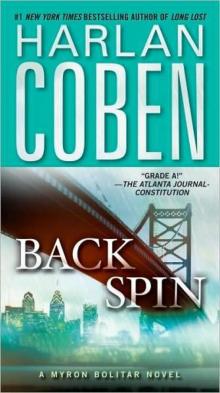 Back Spin mb-4
Back Spin mb-4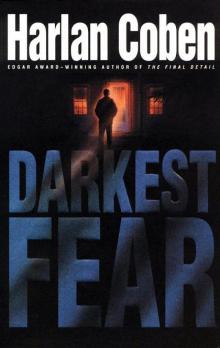 Darkest Fear mb-7
Darkest Fear mb-7